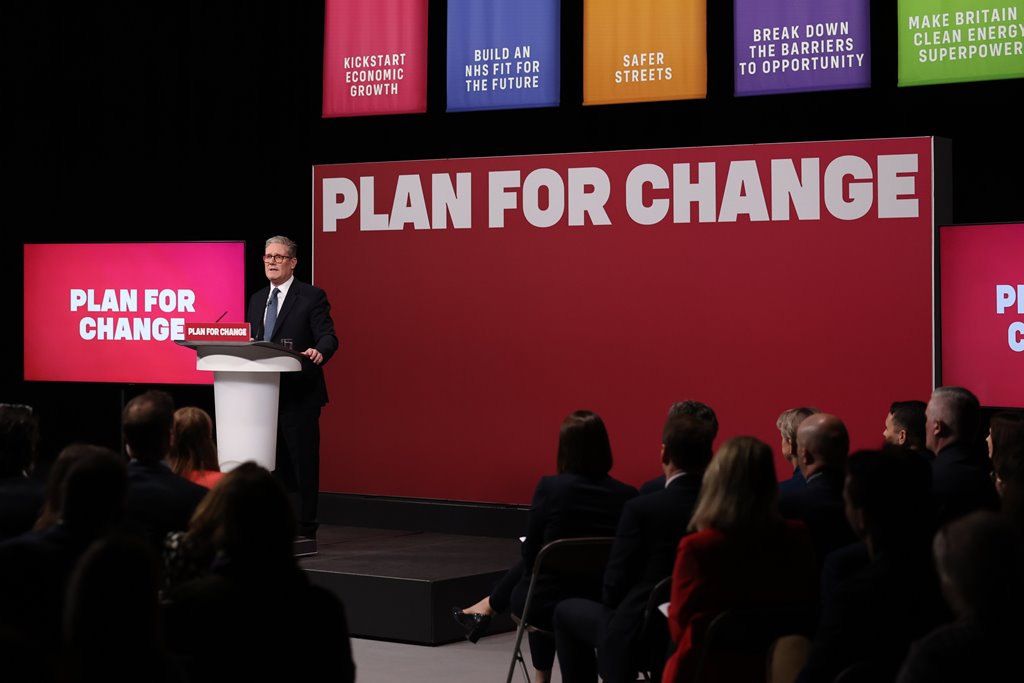Despite credibility in the Labour government’s house-building targets rapidly crumbling, it is now also promising to at least approve three times as many infrastructure projects, if not actually start to build them.
In a speech today at Pinewood Studios in Buckinghamshire, setting out his ‘plan for change’ the prime minister gave the impression that there will no more gold-plating of infrastructure projects just to protect the environmental or satisfy interest groups.
Keir Starmer said: “You walk around our country, you look at our infrastructure, and it is clear almost immediately that we have long freeloaded off the British genius of the past. Because we won’t build a future. We haven’t built a reservoir for over 30 years. And even the projects we do approve are fought tooth and nail, nail and tooth, until you end up with the absurd spectacle of a £100m bat tunnel holding up the country’s single biggest infrastructure project, driving up taxes and the cost of living, beyond belief.
“I tell you now this government will not accept this nonsense anymore.
“We will streamline the approval process in the forthcoming planning and infrastructure bill and driving through that reform I can announce another new target: not just 1.5 million homes but also 150 major infrastructure projects, a milestone that will triple the number of decisions on national infrastructure compared with the last parliament.
“And, just as important, will send a very clear message to the nimbys, the regulators, the blockers and bureaucrats, the alliance of naysayers, the people who say no ‘Britain can’t do this, we can’t get things done in our country’, we say to them: you no longer have the upper hand. Britain says yes. Because, whether you like it or not, we are building a future for working people.”
This may well be music to the ears of many in the construction industry; others may be more wary. The Labour government has already said no to nearly £4bn of planned road building projects since coming to power just five months ago and a decision on the £9bn Lower Thames Crossing has been pushed back until May next year. In its first 100 days Starmer’s government ducked making decisions on 40% of major infrastructure projects that came before it.
That house-building target of 1.5 million by August 2029 is also looking out of reach already, short of a sudden upsurge in student tower blocks and pretending those bedsits are proper homes. Glenigan, the construction market monitoring business, reported a 47% fall in planning approvals in the third quarter of 2024. Since then builders have been saddled with a rise in national insurance contributions and continued red tape. Despite repeated government assurances, nothing has actually yet changed to make their lives any easier.
With Starmer’s latest pronouncements today, it seems impossible for the government now to say no to any more major infrastructure projects, which means that Sizewell C and the Lower Thames Crossing will be spared the axe, even if their start dates will remain moveable feasts.
For the latter project, if Starmer is serious about ignoring “the nimbys, the regulators, the blockers and bureaucrats”, he will need to put a stop to the gold plating that National Highways has already added to that project to moderate its political toxicity, promising to make it “the UK’s greenest road, with carbon reduction running through the heart of the project”. It is handing out millions of pounds to local charities and environmental groups, planting a million trees and running an architectural design competition for a humble footbridge over the A127. Such has been its gold plating, the benefit cost ratio (BCR) is just 0.48. It may not be value for money, but Britain – according to Keir Starmer – says yes.

